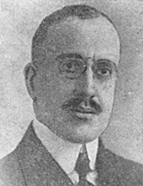

Unfortunately, this is a recurring feature in the majority of António Ferrão’s works — texts rich in erudition but often meandering, where the central theme is frequently lost and then revisited. This is the case with his writing on Gama Barros and his work, which he presents as part of “our small gallery of illustrious Portuguese, which includes Camões, the 1st Marquis of Pombal, Maria Vaz de Carvalho, António Cândido, Gomes Freire de Andrade, and Lieutenant Colonel Almeida Gorgel, not systematically, but according to the chance of circumstances” (Idem, Gama Barros, 1935, p. 3). It is no coincidence that Ferrão's discussion of Gama Barros comes after nine pages on Hegel and, above all, Ranke. Only in the second part of the work does he focus on studying the biographical and intellectual career of Gama Barros, stating that “he is, after Herculano, (...) our first, and our greatest contemporary historian” (Idem, op. cit., p. 23), mentioning his involvement with the Academia das Ciências de Lisboa and including a documentary appendix about his admission to the Academy. Despite these digressions, the text remains a valuable source of biographical and professional information about Gama Barros.
A similar approach can be found in A Academia das Ciências de Lisboa e o Movimento Filosófico, Científico e Económico da Segunda Metade do Século XVIIII [The Lisbon Academy of Sciences and the Philosophical, Scientific, and Economic Movement of the Second Half of the 18th Century] (1923), where Ferrão first discusses this intellectual movement before moving on to the early days of the Academy. Ferrão first talks about this movement and then discusses the early days of the Academy, in a prose that is now outdated and unoriginal, typical of an academic speech given two years earlier. However, one of the most significant ideas is the Academy's role as a precursor to Vintism, “a revolution [that] was no more than the logical consequence of the slow evolution of 40 years of academic work” (Idem, A Academia, 1923, p. 44). In a 1935 volume, based on an academic speech delivered in 1924 on the occasion of Teófilo Braga’s death, Ferrão includes over sixty letters from Júlio de Matos to Teófilo Braga, dating from 1878 to 1882. During this period, the two collaborated formally as co-directors of O Positivismo [Positivism], an annual publication with four issues, whose challenges Ferrão comments on and Júlio de Matos analyses (Idem, Teófilo Braga e o Positivismo em Portugal..., 1935, pp. 31-107).
